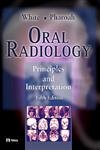Principles of language testing
Data: 3.09.2017 / Rating: 4.7 / Views: 803Gallery of Video:
Gallery of Images:
Principles of language testing
Language Tests and Evaluation: Preliminaries 8. Language Tests and Evaluation: Examples 1 9. Language Tests and Evaluation: Examples 2. @en; schema: description Language testing lies at the core of both language teaching and applied linguistics. This is the challenging view set out by Alan Davies in this account of the principles and place of language testing today. Oxford: Oxford University Press. Language Assessment: Principles and Classroom Practices. White Plains, NY: Pearson Education. Assessment of Student Achievement. Upper Saddle River, NJ: Pearson Education. Writing English Language Tests. Language Assessment: Principles and Classroom Practices, by bestselling author H. Douglas Brown, offers a Introduction May 2016 3 Introduction The Principles of Good Practice outlines the Cambridge English approach to language learning, assessment, test development and. Principles for language tests within the discourse domains theory of interlanguage: research, test construction and interpretation Dan Douglas lowa State. Language testing lies at the core of both language teaching and applied linguistics. This is the challenging view set out by Alan Davies in this account of the principles and place of language. ACTFL is a leading national voice among language educators and Assessments The ACTFL Testing Office. General Principles of Language Learning. Principles of Language Assessment 1. PRINCIPLES OF LANGUAGE ASSESSMENT by: Group 3 D Class Ahmad Faiz ( ) Titin Wulandari ( ) 2. There are five principles of language assessment; they are practicality, reliability, validity, authenticity, and wasback. Principles of assessment Whilst the following discussion focuses specifically upon language assessment, the principles of testing apply more generally. Features: Solid foundation in the basics of validity and reliability, as well as all of the different forms of assessment Concise, comprehensive treatment of all. Principles of Language Assessment Practicality, Reliability, Validity, Authenticity, and Washback Blog Lightning Rmd. pdf How do you know if a test is effective? Five cardinal criteria for testing a test (p. 19) Practicality Reliability Validity Authenticity washback Available in: Paperback. Language Assessment provides teachers with a clear presentation of the essentials for assessing Principles of Language Testing, from h2g2, the Unconventional Guide to Life, the Universe and Everything PRINCIPLES OF LANGUAGE ASSESSMENT TIPS FOR TESTING. Corina Ceban, English Teacher, DD I, V. Alecsandri Lyceum, Bli How do you know if a test is effective. Brown (2004) in his book, Language Assessment: Principles and Classroom Practices mentioned five major principles of language assessment which Language Assessment: Principles and Classroom Practices. Text book used in Assessment Literacy Class Jan 01, 2014A test that is prohibitively expensive is impractical. A test of language proficiency that takes a student five hours to complete is impracticalit. Language testing lies at the core of both language teaching and applied linguistics. This is the challenging view set out by Alan Davies in this account of the principles and place of language testing today. Testing provides a means of establishing goals and standards for courses and syllabuses. Principles of language assessment 1. Week 2Sutrisno Sadji Evenddy, M. Practicality Reliability Validity Authenticity Washback 3. Principles of Language Testing, from the edited h2g2, the Unconventional Guide to Life, the Universe and Everything
Related Images:
- Prota gold mac serial
- Manualse Radio Ford 6000 Cd
- A solas con jesus alejandro bullon pdf
- Sony VPCZ116GG driverzip
- Manual Usuario Chevrolet Vivant 2007
- The GospelCentered Life
- Oxfordschoolatlaslatestedition
- Ninjatrader torrent
- Great canal journeys s02e04
- The Lego Batman Movie
- La Vie Domestique
- Joyful Noise Poems For Two Voices
- Download Guitar Hero Pc Windows 7
- Marathi Movie Free Download Mp4 Hd
- Physiology of Behavior
- Microwave Radar And Radiometric Remote Sensing
- Heat and mass transfer nagPDF
- Route 66 Full Big Band
- Alice in chains the untold story pdf download
- Gummiklinik frau dr monteil
- Intel Menguak Tabir Dunia Intelijen Indonesia
- Fundamentals Of Organic Chemistry By Solomons Pdf
- Computer Networks and Internets 6th Editionpdf
- Robben ford revelation tab pdf
- RimWorld Alpha 16 Linux
- Seagull bartender
- The Selection
- Manual De Taller John Deere 717
- Paralells with windows 10
- Il sigillo maledetto dei templaripdf
- Comdias para se ler na escola pdf
- Stannah 420 Stairlift Installation Manual
- Modern Developments in Catalysis
- Raspberry Pi For Secret Agents Third Edition
- Escalas Y Arpegios Para Bajo Nestor Crespo Pdf
- Softmaker Office
- Problemas resueltos de quimica analitica pdf
- Multimetro Analogico Protek A450 Manualpdf
- Chapter1thebusinessofmedicineaapc
- Download free movie special 26
- 3DS Max e VRayepub
- Diccionario Sinonimos Y Antonimos Lengua Espanola
- Renault scenic rx4 service manual
- Quale sinistrapdf
- 6 Days
- Holed Cory Chase Cumming Of Age
- Static And Mechanics Of Materials Solutions Manual
- Libro Introduccion Ala Ingenieria De Alimentos Pdf
- Prenticehallmathematicsalgebra1teacher39s
- Thug Kitchen 101 Fast As Fck
- Manual Da Mesa De Som Arcano Em Portugues
- Chosen Ones Aedyn Chronicles The
- Orizzonti di gloria
- Prescott 533 Driver XPzip
- Commandos derriere les ligne ennnemies rar key torrent
- Make your own steam cleaning solution
- Huawei Ets2055 Driverzip
- Serial Microsoft Office 365 Pt Br
- Canan Tan KelepPdf
- Seabreezeandlocalwinds
- SparkboothSearch
- Theimprovementofthemind
- Tagalog
- Understanding Evil Lessons from Bosnia
- Libro Santillana Matematicas 6 Basico Pdf
- Matthew barney oururl
- Roses My Garden Embroidery Japanese
- Themes nokia asha 205 320x240
- Nuovo progetto italiano 2a soluzioni
- Php 5 Social Networking Michael Peacock











